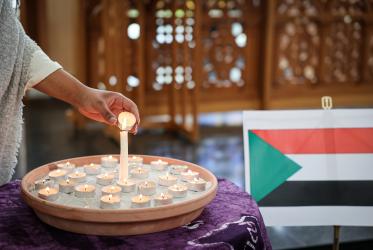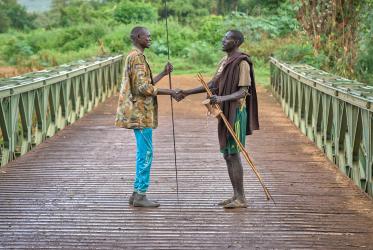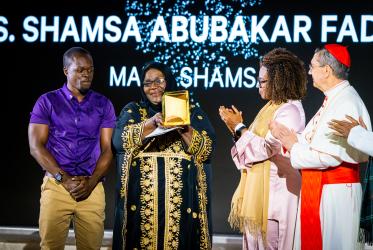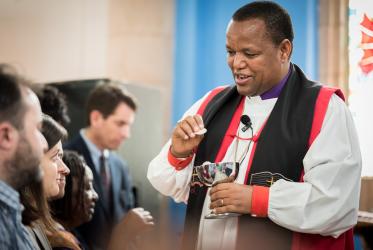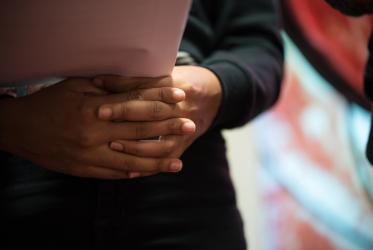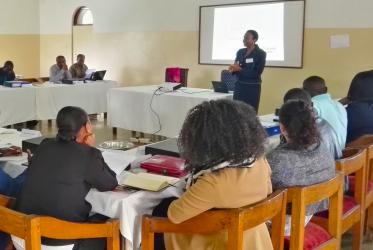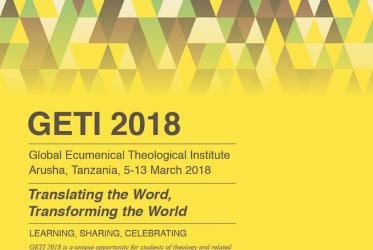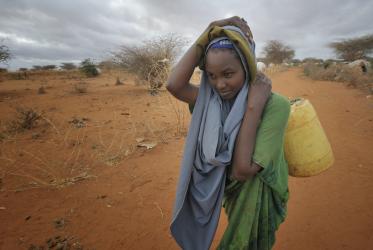Displaying 1 - 20 of 24
Kenyan woman peace-builder wins human fraternity award
14 February 2023
Arusha offers vibrant and colourful worship life
12 March 2018
In Zambia, foreign investors complicate “economy of life”
06 September 2017
African youth takes stand at first ever WCC Eco-School
03 August 2017
Seven weeks of Lent highlight water crisis in Africa
01 March 2017
An interview with the Ethiopian Patriarch, Abune Matthias
14 February 2017
Faith communities explore concrete climate action at COP22
10 November 2016
Voices of faith speaking to voices of fear
03 February 2016
Land rights focus of panel discussion
17 November 2015
